
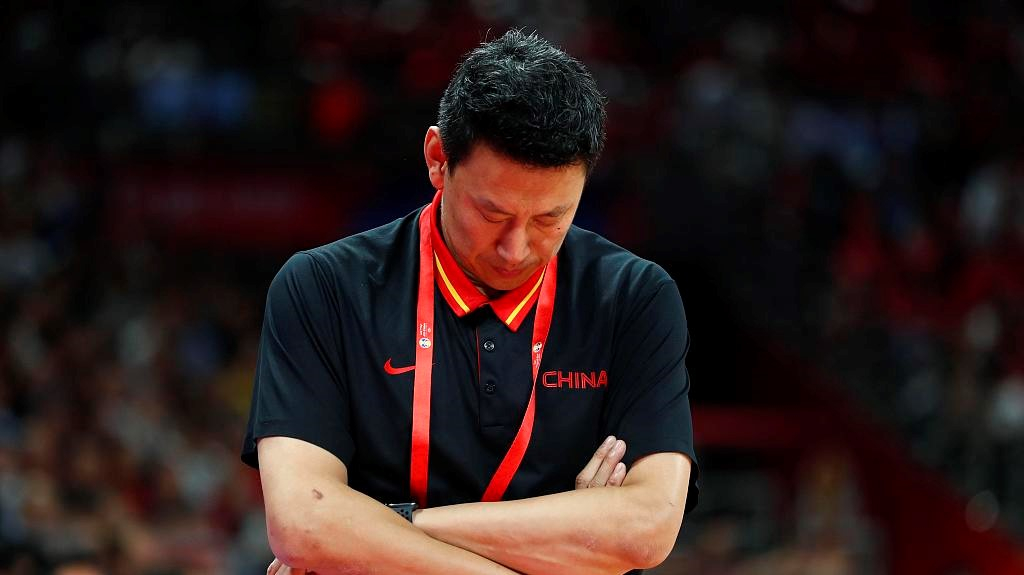
Wednesday was a painful night for Chinese basketball fans after China lost to Venezuela 72-59 in their last group game in the FIBA Basketball World Cup in Beijing, eliminating them from the tournament. Someone has to be blamed for this failure and based on the furious calls of "Li Nan out!" at the Cadillac Arena on Wednesday, Chinese fans found their target.
It's unfair to blame coach Li Nan for everything because after all, it was not him who was playing on the court. However, some of his decisions during the team's two losses were confusing and partly to blame for the team's failure.
Question 1: Why were Chinese players so easily exhausted?
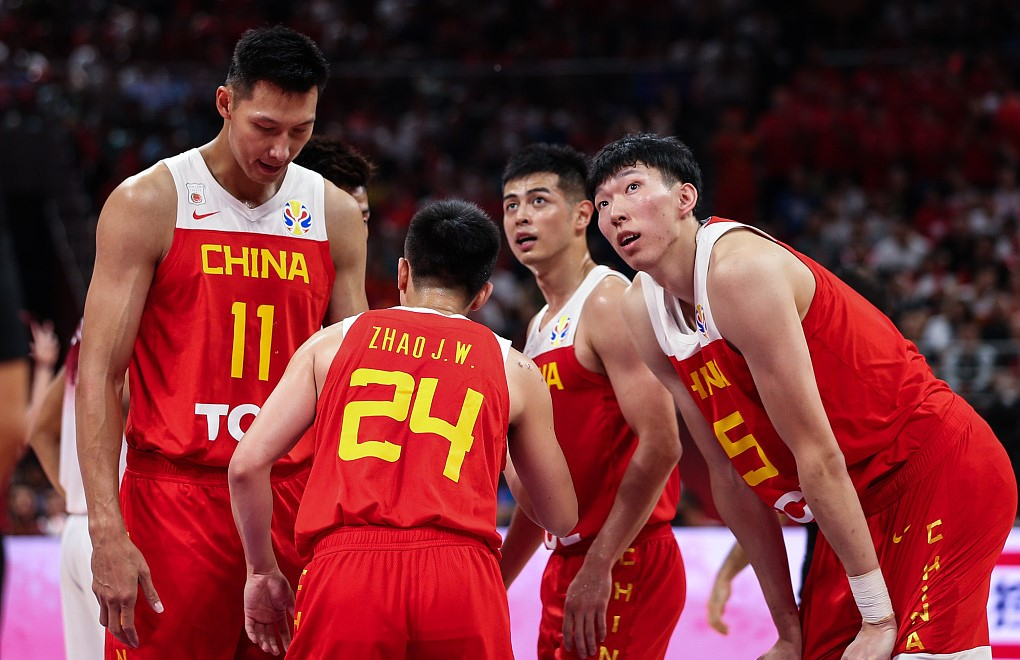
Team China players communicate with each other in the game against Venezuela in FIBA Basketball World Cup in Beijing, September 4, 2019. /VCG Photo
The Chinese Basketball Association released its 20-player training camp list on May 6, meaning that Li and his team had over three months to practice, get to know each other and store up strength. Meanwhile, China automatically qualified for the World Cup as the hosts, so the team had no pressure from qualifier games, which was supposed to be another advantage.
However, when the team were on the court, most of their players showed signs of weariness after 20 minutes, making them slow in competing for rebounds and switching on defense. If 32-year-old Yi Jianlian who averaged 18 points per game could be excused for that, why was 23-year-old Zhou Qi who only got 10 points per game be so easily tired?
Question 2: What's wrong with China's free throw shooting?
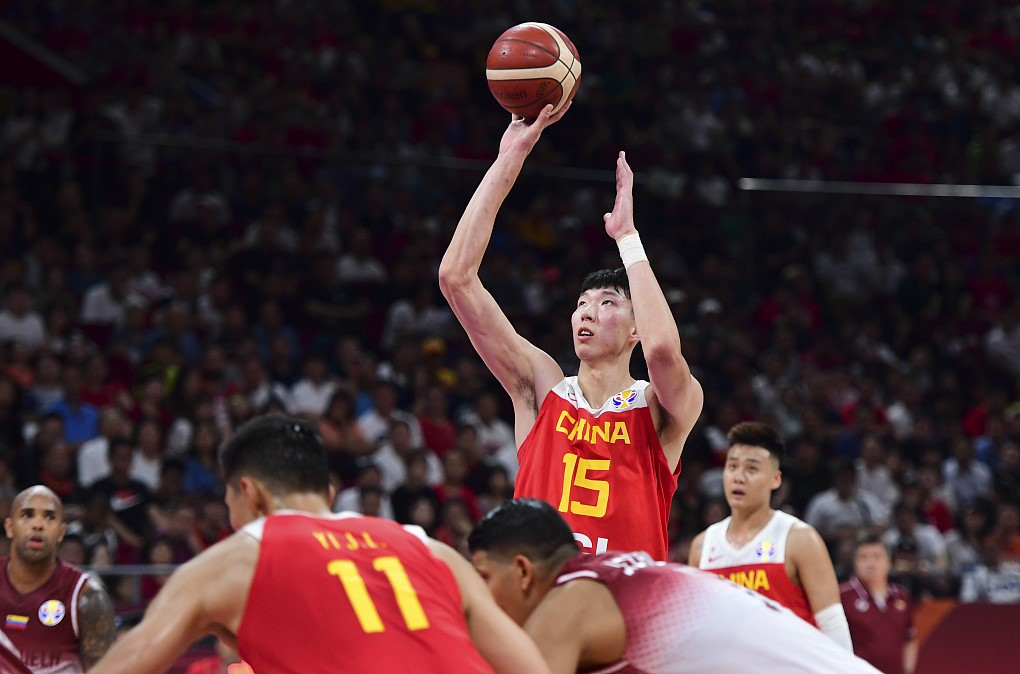
Zhou Qi #15 of China shoots a free throw in the game against Venezuela in FIBA Basketball World Cup in Beijing, September 4, 2019. /VCG Photo
China's free throw rates in the three games were 57.9 percent (11/19), 63.6 percent (21/33) and 63.6 percent (14/22) respectively, which meant that on average, China missed out on an additional 9.3 points per game because their players could not make the most fundamental shots from the free throw line. A little reminder, China only lost to Poland and Venezuela by three and 13 points respectively.
Chinese players have never been known for having strong bodies or explosive athleticism, but fundamental skills have always been an advantage – Yao Ming, a 2/26-meter tall giant, kept a free throw rate of 83.3 percent in his NBA career. Again, coach Li Nan had over three months for training and the above was the free throw rate he got from his players.
Question 3: Why didn’t China have a working offensive system?

Guo Ailun #6 of China shoots against defense of two players of Venezuela in the game in FIBA Basketball World Cup in Beijing, September 5, 2019. /VCG Photo
One of the first impressions of watching China's games in the World Cup was that it was difficult for the team to launch attacks. Their guards were willing to pass and their big men were happy to set screens but after that, the team's offense was a total mess. Perimeter players often did not know where the big men were and even if they did, they would have to confirm with their eyes before passing the ball – way too slow in professional basketball. As for China's big men, especially Zhou Qi and Wang Zhelin, they had no idea what to do after setting screens in most possessions. As a result, China's offensive possessions often began with slow passing and ended with a forcible isolation play.
Coach Li has to be held responsible for this. One of his most important jobs is to make sure that his players have multiple options in store for the game and know what to do when other choices fail. In their three games, the entire team fell into the pattern of "let's improvise and see where it leads us."
Question 4: Why didn't forwards get enough time?

Ren Junfei of China in practice before the game against Poland in the FIBA Basketball World Cup in Beijing, August 31, 2019. /VCG Photo
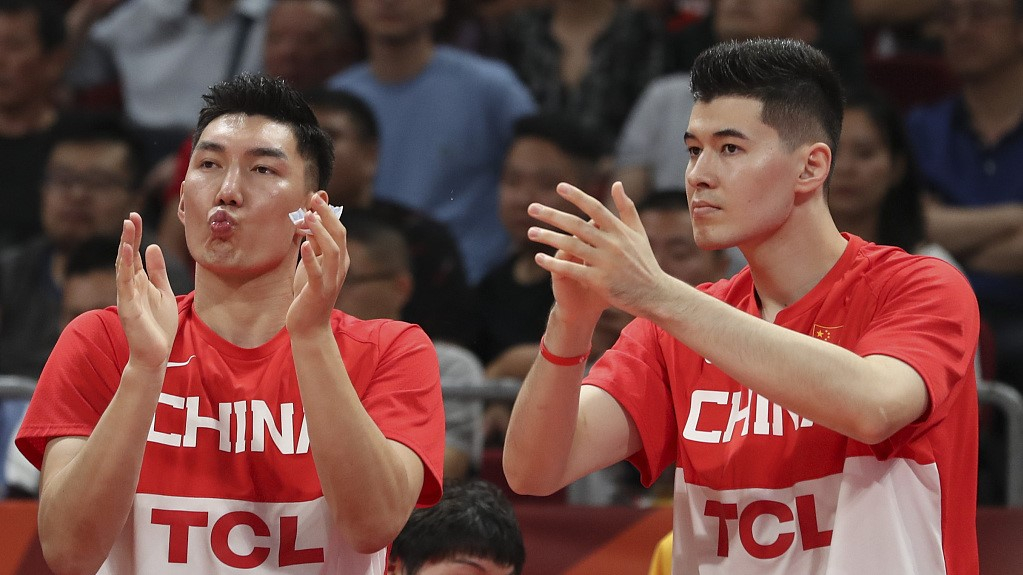
Kelanbaike Makan (L) and Abudushalamu Abudurexiti (R) of China cheer for their teammates in the game against Poland n the FIBA Basketball World Cup in Beijing, August 31, 2019. /VCG Photo
The squad coach Li picked for the World Cup had a defect: it lacked shooters. Therefore, China had to rely on defense and rebounding as their key to victory. In today's basketball, wing players, or forwards, play extreme roles on defense thanks to their ability to switch to guard multiple positions and their help on rebounding because of their wide coverage area.
Nonetheless, in all three games, only Zhai Xiaochuan got enough time on the court. The other three forwards, Abudushalamu Abudurexiti played a total of nine minutes and 50 seconds in three games; Kelanbaike Makan was only sent to the court until the third game for seven seconds; Ren Junfei got only 19 seconds in the second game.
Li's decision of giving this time to guards did not help the team's offense as he had expected. Instead, the team was consistently at a height disadvantage including mismatches on defense and a lack of rebounding. In the third game when Venezuelan players kept grabbing offensive rebounds like they were at a buffet, Li refused to send in more forwards. He also made the same call when most Chinese players on the court were too tired to even move.
Question 5: Why didn't Sun Minghui get more time in the third game?
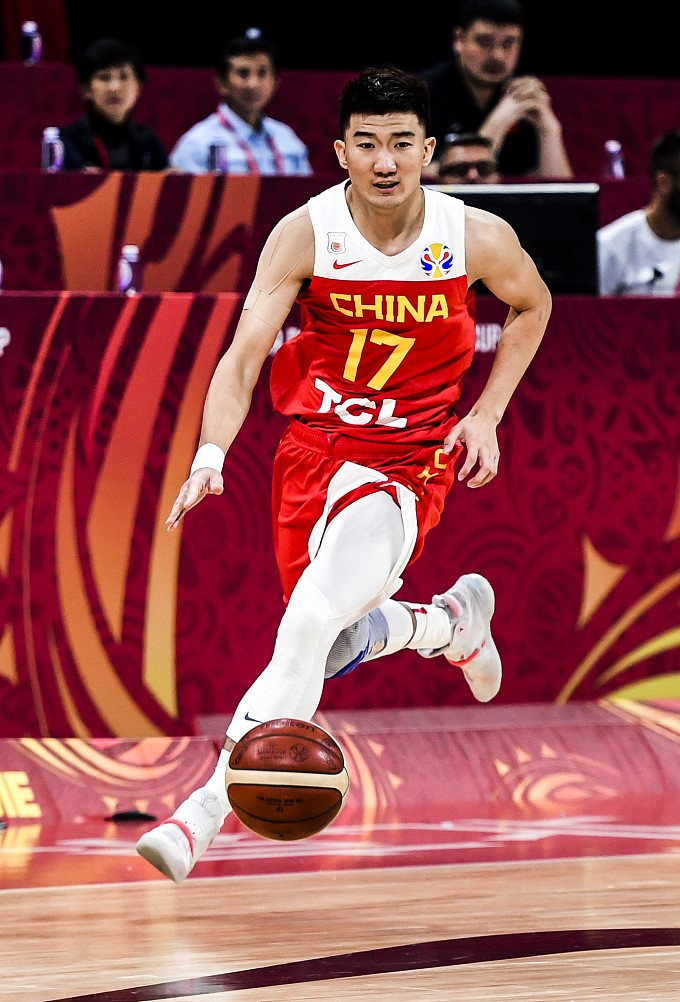
Sun Minghui of China handles the ball in the game against Venezuela in the game in FIBA Basketball World Cup in Beijing, September 5, 2019. /VCG Photo
China lost to Poland 79-75 in their second game but, as painful as that was, China actually had chance of winning that game and Sun Minghui was the reason. Having sat on the bench in the game against Cote d'Ivoire, the 23-year-old guard was sent to the court in the game against Poland and became the biggest surprise. His aggressive defense almost froze Poland's A.J. Slaughter, creating the chance for China to launch a counterstrike.
However, even after his heroic performance, Sun still did not gain trust of Li who only gave the substitute guard less than six minutes. Meanwhile, Zhao Jiwei, Zhao Rui, Guo Ailun were already at bay on the court.
China will be playing against South Korea on Friday and Nigeria on September 8 in south China city Guangzhou in the 17-32 Classification Round to compete for 2020 Summer Olympics qualification.

Copyright © 2018 CGTN. Beijing ICP prepared NO.16065310-3
Copyright © 2018 CGTN. Beijing ICP prepared NO.16065310-3